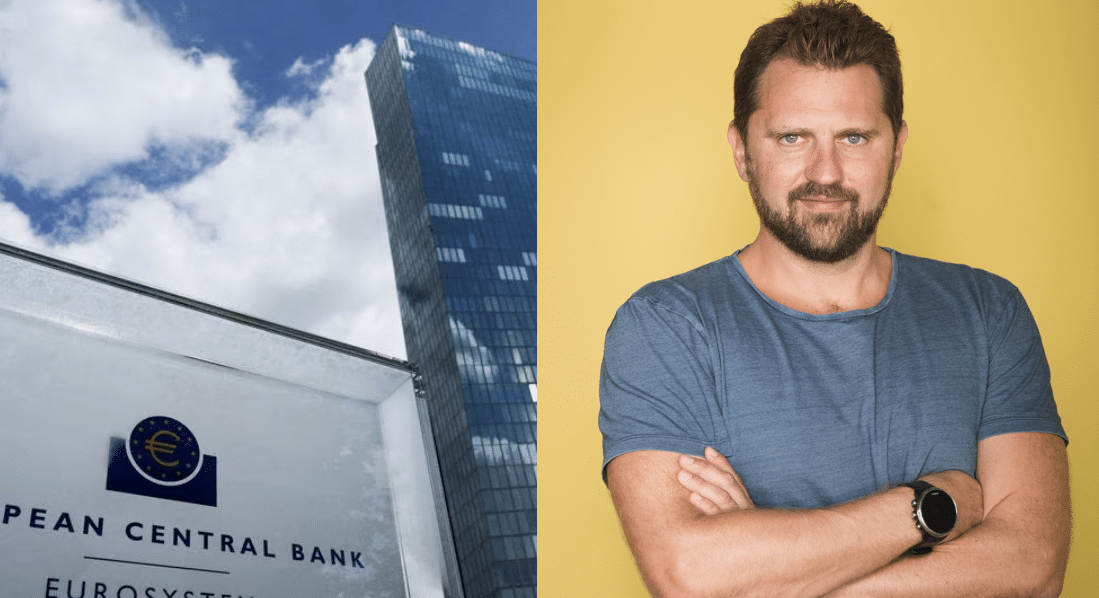The European Central Bank (ECB) on Thursday raised interest rates for the eighth consecutive time, in line with market expectations, staying on a path of policy tightening, as it continues to battle high inflation.
In addition, the ECB has now raised borrowing costs by a combined 4 percentage points in a year, its fastest pace on record.
However, analysts are pointing out that “a peak is now clearly in sight and the debate is slowly shifting to how long rates will need to be kept at current levels”.
In response to the ECB’s decision to once again raise interest rates, Victor Trokoudes, the founder and CEO of fintech firm Plum, which also has regional offices in Nicosia, stated that the latest rate hike doesn’t come as any surprise, given Christine Lagarde’s comments that rates would need to be increased again to contain inflation.
Additionally, he noted that a further rise may yet follow in July, taking the rate to 3.75 per cent, even though inflation is falling and the eurozone is in recession.
“Many will be hoping that the market’s prediction of 3.75 per cent as the terminal rate is correct, given the pressure rising rates are placing on businesses and consumers,” he said.
“There are signs that it could be. It will be a relief to Lagarde that consumer expectations on inflation have fallen significantly. So it appears that the work the ECB is doing to counter inflation is having some impact,” he added.
Trokoudes noted that the ECB has raised interest rates by a combined 400 basis points over the past year to tackle price growth.
However, he continued, inflation is still more than 3 times the ECB’s target, while core inflation is proving stickier than hoped, falling to 5.3 per cent from 5.7 per cent.
“Underlying inflationary pressures have built up and proved harder to reverse in
contrast to initial expectations, when inflation was supposedly transitory,” Trokoudes stated.
“With the recent update that the Eurozone was in recession, the ECB has a very tricky
balance to strike in conquering inflation while not stunting any economic recovery,” he added.
Moreover, Trokoudes said that “to Lagarde’s credit, she has provided clarity, especially when compared to the more ambiguous messaging from the Bank of England”, noting that “this has enhanced her and the ECB’s credibility”.
However, the Plum CEO said that “while the ECB is making better progress in tackling inflation compared to the likes of the UK, that won’t be much comfort for European citizens who are continuing to face their own cost of living challenges”.
Given this environment, Trokoudes explained, it’s “important for Europeans to find opportunities to make their money work harder by finding savings accounts that provide higher interest rates”.
“As the ECB rates increase, Europeans now have the upper hand in choosing the best option for their savings in the short term,” he stated.
In addition, he explained that it can also be useful for people to have a look at their household bills, like energy, broadband and insurance, and try to renegotiate the prices with their supplier, if not finding a cheaper alternative altogether.
“Even small savings can, when added up, can significantly lighten a budget,” he said.
“The best defence against rising costs is good budgeting and making savings work
as hard as possible,” he added.
Trokoudes went on to say that “alongside this, building long-term through investments is often the best way to protect the value of your money from being eaten away over time by
high inflation”.
“Investing manageable amounts regularly through euro-cost averaging smooths out the bumps in the market and will help keep a consistent portfolio ticking over,” he concluded.






Click here to change your cookie preferences